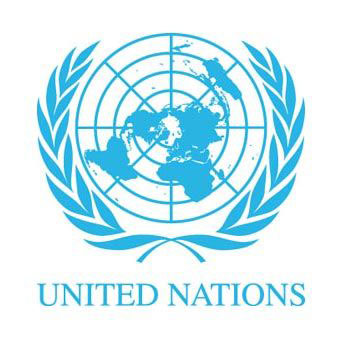Belarusian NGOs sent its report as part of the Universal Periodic Review to the UN
Report, presented to the office of the UN High Commissioner for Human Rights provides an overview of situation with the human rights in Belarus. Human rights defenders have expressed anxiety about the lack of real progress on key problem spheres of human rights in the country,
noting concrete steps of the implementation of the recommendations made and accepted by Belarus in the first cycle of the UPR.
The report was prepared by the following organizations: "Belarusian Helsinki Committee", HRC "Viasna", PU "Center for Legal Transformation", The Assembly of Democratic NGOs of Belarus, the NGO "Belarusian Association of Journalists", NGO "Legal Initiative", Committee "Solidarity", Initiative "For freedom of religion, Office of the rights of persons with disabilities, Belarusian documentation Centre, Belarusian human Rights House named after B. Zvozsky.
The Universal Periodic Review (UPR), which is currently is in Belarus - is a relatively new (is working since 2006) mechanism of the Human Rights Council, which aim is to estimate the level of fulfilling of its international human rights obligations by each of the 192 UN member. UPR is made to improve the human rights situation "inside", to promote the implementation of the obligations of the state in the field of human rights and to strengthen the capacity of the state in the protection of human rights. The human rights situation in each State is being checked every five years.
Overview is based on three key documents.
The first one is the information prepared by the State. There are information on the regulatory and institutional ways for the protection of human rights, information on the implementation of international obligations, national legislation and voluntary commitments in the field of human rights, national priorities and initiatives to solve the problems and improve the situation of human rights; expectations of the state in terms of capacity building and requests for technical assistance in the national report.
The second one is prepared by the Office of the High Commissioner for Human Rights. It’s a compilation of the information that is in the reports of treaty bodies, special procedures and other relevant UN bodies.
The third one is a summary of additional "credible and reliable information" provided by other interested party, such as NGOs, national human rights organizations, trade unions, religious groups. This summary is also made by the Office of the High Commissioner for Human Rights.
The first cycle of the UPR in Belarus took place in 2010. Belarusian NGOs have also prepared a report to the office of the UN High Commissioner for Human Rights before. The state report was presented to NGOs and there were consultations between human rights defenders and representatives of the Ministry of Foreign Affairs.
International community sent a Belarus 93 recommendations to improve the human rights situation as a result of the first cycle of the UPR, 55 of them were supported by the country at once (in May 2010). 2 more recommendations were considered as acceptable, 1 - partly acceptable, 15 recommendations announced to be implemented, 1 – in the process of implementation, and 19 recommendations declared unacceptable in September 2010,.
Belarusian NGOs prepared a report on the implementation of these recommendations in the spring of 2014. There were held national consultations on the same topic with representatives of the legislative, executive and judicial authorities, public organizations and associations upon the initiative of the Ministry of Foreign Affairs and UN / UNDP Office in Minsk.
The second cycle of the UPR is scheduled for May 2015. Belarus have to demonstrate progress in the field of human rights, taking into account the recommendations adopted by it during the first cycle. NGOs sent its report to the office of the High Commissioner for Human Rights before the start of the UPR.
State report is be submitted not later than January 19, 2015.


















